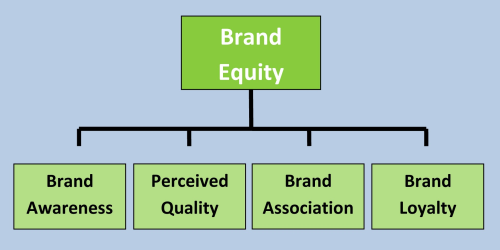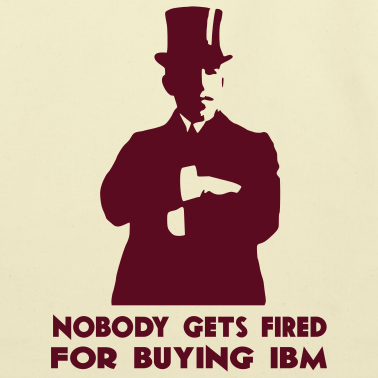
In the last 40 years the concept of branding, as a means of differentiating one company or product from another, has become an important and powerful marketing tool. Enormous sums of money, and extensive executive time has been invested in developing and promoting brands, and making sure that more buyers were aware of the value that a brand had to offer.
Since then many people – particularly those in the public eye, including actors and politicians – have come to recognise the value of developing a strong brand. It wasn’t too long before some salespeople followed suit. Recognised the value of creating a brand for themselves and becoming “personalities” in their own right, these high equity salespeople are now leading the pack!
However, because of some of the misconceptions about brand equity, one of the questions salespeople are now asking themselves is whether building a brand identity for themselves is really worth the effort?
Although brand identity is about capturing share of mind – the better known the brand, the more likely it is that customers will want it – branding actually involves much more than just awareness. Central to the concept of branding is what is referred to as brand equity – i.e. the premium a purchaser places on doing business with a supplier over others. And brand equity for salespeople is no different to brand equity for a product. Here is an example…
Brand equity refers to the premium price that a product – say Coke – can command over a no-name brand cola drink. Because Coke is so well known and so consistent in its taste, appearance and offer, it has, over time, created a high level of equity. That equity allows Coke to charge a premium. In other words, consumers willingly pay more for a Coke than they are prepared to pay for a house or no-name brand because in their mind, Coke offers something the other brands don’t, that is worth more!
Exactly the same principle applies to salespeople. Those salespeople with high brand equity are better placed within their organisation and with their customers, because they consistently deliver on their promise. Interestingly enough, when salespeople develop strong brand equity, everyone benefits…
On a personal level, salespeople with high brand equity are able to command a better remuneration package.
The organisations they represent also get a better return. These salespeople enjoy unique levels of credibility and an exceedingly good reputation with customers. The better the brand equity, the greater is the believability of the salesperson – i.e. the person’s credibility rises along with that equity and the more cost-effectively they sell. They tend to get less pressure for discounts and find customers and prospects are more cooperative simply because buyers see value in having them help address their key issues.
Does this concept sound far-fetched? In the late 1970’s IBM salespeople were considered the elite. Highly skilled, highly knowledgeable and living the brand identity of IBM. Known in those halcyon days as “Big Blue”, IBM sales executives (they were never referred to as salespeople) were mandated to wear blue suits, offset pale blue or white shirts with starched collars and matching tie, with black shoes, black belt and parted hair. Their physical appears represented the image that IBM portrayed in its brand.
 IBM’s brand equity was reflected in an expression common at the time (amongst Information Technology Management): “You won’t get fired for buying IBM”. That concept carried over to the sales executives: “The advice from an IBM salesperson is sound and credible…”
IBM’s brand equity was reflected in an expression common at the time (amongst Information Technology Management): “You won’t get fired for buying IBM”. That concept carried over to the sales executives: “The advice from an IBM salesperson is sound and credible…”
Until the corporation tripped by not embracing the PC revolution fast enough IBM’s sales force commanded a premium. They were amongst the highest paid salespeople in the IT sector and enjoyed the greatest degree of respect and credibility amongst customers who were – even then – becoming disenchanted with the false promises of many IT salespeople.
So yes, brand equity for salespeople really does deliver value for all concerned. The interesting part is that developing high levels of brand equity that will differentiate sales professionals is not all that hard. Like branded products, the hard part is sustaining the brand value, consistency and image.
Having addressed the fundamentals – knowledge, skills and mindset, for salespeople to enjoy the benefits of developing high levels of brand equity there are five things that should be considered…
For starters salespeople who want to build strong brand equity don’t have to stress themselves and try to be the highest performing members of the sales team. Top selling brands aren’t necessarily the best. What they are is the same. They are consistent at whatever level they are. So yes, salespeople need to meet their targets and fulfill their responsibilities – all of the time – but like top selling brands, they don’t have to be the best – only the most consistent and meet what is expected of them.
Next, top selling brands have a clear value proposition that they communicate to their markets. That message is always credible. Top brands don’t claim to be something they aren’t or to have characteristics that they don’t have. Top branded salespeople too, have a clear promise on which they always deliver. They don’t make promises or claim to offer benefits that don’t exist or that they can’t deliver. Their customers know that if they say something will happen or a solution will deliver a particular outcome, it will happen. That’s what gives them credibility and that’s what adds to their value.
Top selling brands are both easily and highly visible. They usually enjoy the lion’s share of any advertising or promotional budget and are always easy to spot amongst rivals because their appearance – look and feel – is so clearly defined (Coke, IBM, Nike etc.). And top branded salespeople are just as visible. They take time to ensure their appearance reflects the message they want to communicate. They also carefully consider their behaviour. These (appearance and behaviour) are the ways they “advertise” their difference so that their customers easily recognise them apart from their rivals.
Branded products are well protected. Any deviation from the brand standard is quickly addressed by the manufacturers and marketers because a bad experience with a brand could irreparably damage the brand equity. Salespeople who have brand equity take on the same responsibility.
They live by the mantra – “The promise I make is the promise I keep”. So, they never play the blame game. They simply fix the problems their customers may have had with a purchase (when these do occur). They don’t view solving customer concerns as something for another department, but rather as part of their responsibility to protect their brand equity.
There are many salespeople who meet all of these criteria. They are probably brand leaders, without realising it. As a result, they tend to undermine their own importance in the sales mix, ending up by losing control of the sales interaction, rather than sharing it with their customers, as equals. They under-value the importance of being an expert-advisor – someone with the knowledge, experience, skills and mind set able to solve complex business problems in their field and who are truly valued by customers. As a result some of these salespeople become either too pushy or too call reluctant to be fully effective. Getting the balance right and living the brand you can be, makes for really exciting times that benefits everyone in the mix.
Remember everybody lives by selling something.
Author: Sue Barrett, www.barrett.com.au


New Article Email Notification